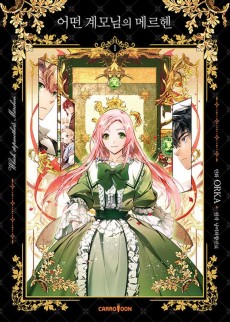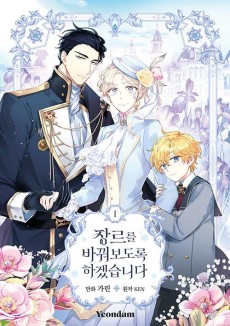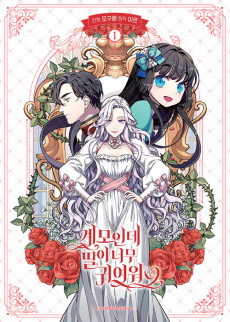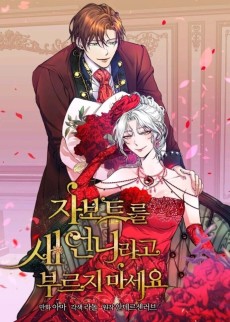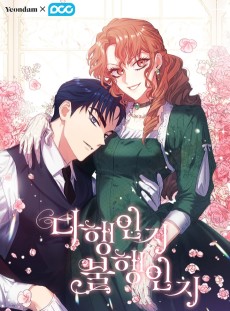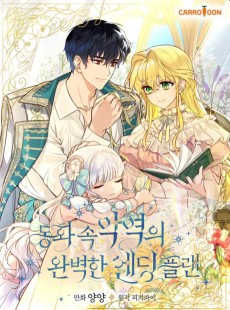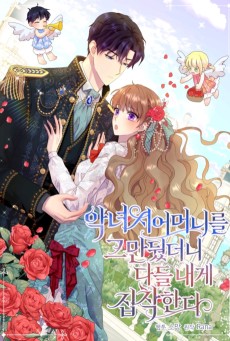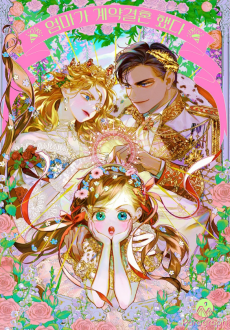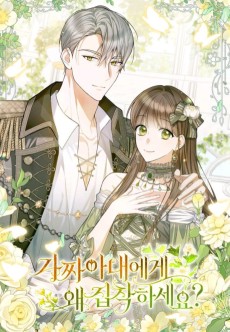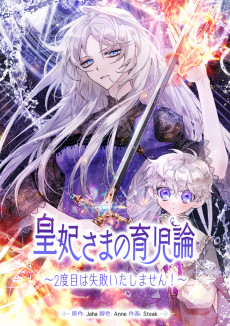CINDERELLA GOPGE KIWOTSEUMNIDA
STATUS
RELEASING
VOLUMES
Not Available
RELEASE
Invalid Date
CHAPTERS
Not Available
DESCRIPTION
We all know the fairytale: the glass slipper, the not-so-pretty stepsisters, and a night with the prince until the clock strikes midnight. I have been reincarnated into that classic story, not as Cinderella, but as her “wicked” stepmother! Widowed twice by age 37 and with three daughters, my goal is to make sure all will have suitable partners and their own happily ever afters... and maybe a nice future for me as well! But who is this handsome young baron that keeps approaching me?
(Source: Tapas)
CAST
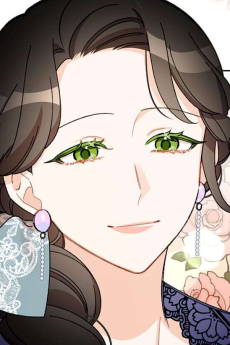
Mildred Vans
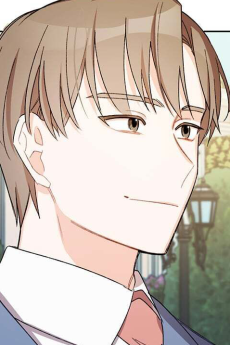
Daniel Wilford
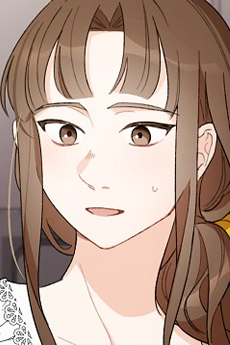
Iris Vans
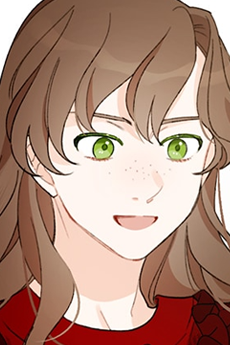
Lily Vans
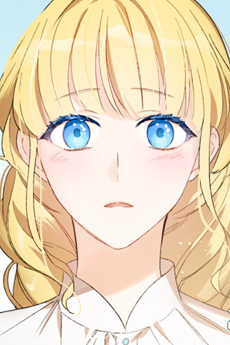
Ashley Vans
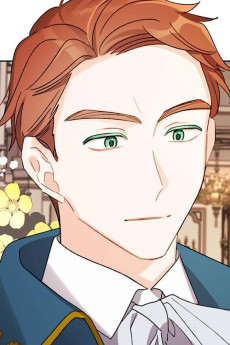
Douglas Casey

Leon
CHAPTERS
REVIEWS

Julyfire
20/100Can A Stepmother Isekai Work? Not With a Gaggle of Three Teenagers.Continue on AniListCAUTION: REVIEW MAY CONTAIN SPOILERS. READ AT YOUR OWN RISK.
Now that isekai has inundated and permeated into every single genre, readers are getting bored. The novelty is wearing off, and if you really, really look at this now overused trope, you can see why so many of these stories have failed. Why is there even a need to isekai in the first place? Usually, after about ten chapters in, the main character has already forgotten all traces of their original identity and they've become fully immersed into their new life. Sometimes even you, as the reader, would have forgotten that the initial plot was that of a character being called into a different world not of their own volition. And then you wonder to yourself, why wasn't this story just told as a normal, straightforward one in the first place?
Usually, the whole point of using isekai is stressing the precognition of future events. You'd have a lead character who transmigrates to another world, recognizes this world as something they've already read/seen/played/heard of, and then they'll try to live out some semblance of a heroic, normal, or evil life, depending on the protagonist's original personality and goals. It will go well for them for a while, until they reach the inevitable point of thinking "Hey! Why is this event not happening like it's supposed to?" or something akin to that, not realizing that all their meddling (or lack thereof) has irrevocably changed the original story of whatever it was that they remembered. And this is where the isekai fails, because these characters no longer have the benefit of falling back on their prior past knowledge of future events in order to advance. Yet, somehow, because all of these stories are usually badly written, the protagonist rolls with the punches, and they still get a happily ever after at the end.
This is precisely the reason why the new standard of isekai does not work, because it focuses too much on one world, a world that revolves on too much "telling" and not "showing." We are TOLD by the protagonist that this is what is supposed to happen, watch this said event happen, and then the lead character reacts accordingly to it, then rinse and repeat. It completely takes away the element of surprise, and we don't get immersed in the new environment like we should have been (aren't new worlds quite exciting?), because if the protagonist isn't surprised, why should we be? There's too much information dumping, and it often happens in large stretches in the beginning as the hero tells us how this different world works, and what to expect from it. Sure, sometimes something deviates from their deep-rooted well of knowledge, but it's inconsequential, because it doesn't impact the story much, and if the character is momentarily fazed by it, they move on rather quickly, not letting readers process and digest it. Ultimately, all those small gaps in their otherwise comprehensive understanding of this new environment don't make any difference in the plot itself, and don't act as a viable source of conflict. By the time something completely throws the main lead off their tracks, derailing their cushy life where they're the center of everyone's attention and/or affection, it comes as an "About time!" and we can't feel much sympathy for them, because their journey thus far has been completely uneventful, in terms of both character growth and exploration.
Of course, not all isekai stories are like this, but it is most certainly an emerging trend I'm seeing as I read through several popular webtoons that are popping up in this genre. The only story element that changes is what the exact role has our hapless protagonist landed themselves into, and everything else is blandly predictable from that point onwards because invariably, the author will fail to capitalize on that initial point of difference since there are only two scenarios -- it's always either a heroine in a sweeping romance, or a hero on a fantastical adventure. And that is why these types of stories are unsustainable as an isekai. There is no "different world" if the original world makes no impact on the experience of this new one. You should just write it straight, with the protagonist already living in this current world to begin with, if you will never, ever address the first world again. If future knowledge is so important to the concept of your plot design, then by all means, do the second-chance-at-life stories that are also rising in popularity. While not always, I find that these types of stories are usually better written than isekai ones, because the character has FAILED (AKA died) and consequentially treasures this precious opportunity in a way that an isekai'd character will never be able to, since it's deeply personal. A character popping randomly into the body of a different person is not.
That is not to say that this type of isekai storytelling will never work, but it largely depends on the skill of the author. However, it seems that there are very few and far between, because the only such isekai like this that I've actually enjoyed reading is "Trash of the Count's Family." Cale Henituse uses his prognostication to his advantage like every other isekai'd protagonist, yes, but he doesn't smoothly cruise through life. There are often many unexpected events which happen, yet he is able to react swiftly and accordingly to each one, demonstrating his clever resourcefulness. He doesn't solely rely on prior knowledge as a plot armor crutch, neither does he have the standard traits of a hero. While he is selfish, materialistic, and practical, his heart retains the capacity to care for his companions, albeit unwillingly at first. His reactions to this new world are genuine, and despite knowing many key details about the original story's flow, he has several backup plans in case the first one fails, which make him unique as an isekai'd lead character. "Trash of the Count's Family" is a breath of fresh air compared to the stale, ill-conceived pile of garbage isekai has grown into.
Even isekai webtoons where the main characters don't have any information about the world they've been unceremoniously dumped into sometimes don't work, because of awful conception. In "The Twin Siblings' New Life," two fraternal twins died simultaneously in a freak accident, only to be reborn together again as illegitimate twin children of the imperial family. Why did this fail? Because the author was unable to take advantage of utilizing dual protagonists effectively, which is the main selling point of this webtoon in the first place. Look at the title. It says "twin siblings," but they may as well be the same character split into two bodies, since there is virtually no difference between the girl Arien and the boy Arjen. Not only that, but they are supposedly in their twenties mentally, yet frequently act like their current bodies' biological age, which is five years old. This is yet another glaring flaw of these isekai stories, because the author cannot make up their god-damned mind if they want their transmigrated character to act like an adult when they're put into the bodies of a child. It's like they forgot how an adult acts in a normal situation, but at the same time also don't recall how real-life children behave, so in the end, we get a confused bundle of idiotic childish protagonists. In this case, it would benefit from writing the story starting at the point where they're biologically near their mental age, so this chaotic mismatch doesn't happen, and we don't have either unbelievable child prodigies or intolerable petulant brats, both of which are equally insufferable as character archetypes.
The attraction of the isekai genre is that it offers an escape from the mundane. It is nothing new. People have fantasized about being transported into different, unfamiliar worlds for a long time, such as the tale of Urashima Tarō circa 700 AD, where a fisherman rides a turtle to an underwater Dragon Palace, meets a beautiful mermaid princess, and enjoys his new life there. When he returns to his original world above the sea, he finds that several centuries have passed and everything has changed since his departure. More recently, in the 1990s, the isekai genre has been well-received in stories such as "InuYasha" and "Fushigi Yugi," both of which, incidentally, were my first taste of manga. These two series had it all -- action, adventure, romance, friendship, and most importantly, worldbuilding. Both of the isekai'd heroines, Higurashi Kagome and Yuki Miaka are naive junior high school girls who unwittingly wind up in a dangerous fantasy world full of deadly threats, as well as powerful allies. As they explore these foreign lands, we feel their fear, their struggles to adapt, and their desire to save this new world that they've come to love. At the same time, they never forget their origins, and they yearn to return home. They are caught between two worlds, and ultimately, it's their decision on which world they want to live the rest of their lives in when everything is over.
In all these cases, it can be seen that well-written isekai juggles the memory of the first world with the happenings of the second one, so as to put the protagonist's dual identities and roles in perspective. It remains an important influence in their behavior, their actions, and most importantly, their desires. They have the power to choose which world they want to belong to, and staying may very well mean they'll never see their own family ever again, which up until that point, has been an important reason for their dogged pursuit of a means of returning when they originally arrived on foreign shores. To put it simply, a character who has lived two lives in two worlds should retain at least a desire or a longing for what used to be, no matter how engaging or consuming their present situation is. Even the divisive "Sword Art Online: Aincrad" puts the goal of returning to the original world as the top priority, so both characters and readers don't forget what the aim of the game is supposed to be. Yet the onslaught of the new-age isekai we've found ourselves consuming nowadays completely forgoes the good old past to wholly embrace the shiny new present, even when the latter is not the least bit entertaining, making me question why we've isekai'd the hero in the first place.
Okay, so I've ranted for eight paragraphs without actually addressing the webtoon that is the topic of this review, but I promise all these points I've brought up will come into play, because "I Raised Cinderella Preciously" takes everything wrong about the current state of the isekai genre and just slaughters it with its inexplicably uneventful dullness. Or perhaps it smothers it with a whole lot of absolutely flipping nothing. Either way, I'm really flummoxed as to why this story exists at all. Trying to bring a new twist to the equally tired genres of "Cinderella" and isekai stories, we have the female lead, who ends up reincarnated as the evil stepmother. But this time, she's going to raise all her kids right, including Cinderella, yay~ We will have a happy, fabulous family, joy to the world, the story we've all been waiting for! Hold on, let me stop you right there.
Let's just ignore the isekai part of the story for a bit. As a stepmother, you really only have two choices on how to act. You can either dote on your own kids and mistreat the ones who aren't related to you, that's the original bad stepmother archetype; or you can love all of them, regardless of whose blood runs in their veins, which is the selfless good stepmother archetype. I suppose you can also ditch all the kids and start all over again as an unattached free spirit, but then that would make you an awful person, and no one will want to read your story. It's also somewhat possible that you'd mistreat your own children, and love the stepchildren instead, but only if you were a terrible mother to begin with, and that's not a good image, either. So discounting those two highly unfavorable scenarios, we return to the two most likely choices of how a new stepmother would behave, which is either selective favoritism or universal compassion towards the two types of children in the conjoined households. Okay, now let's go back to this being an isekai. With the main character familiar with the story of "Cinderella," she knows that she gains nothing from mistreating the titular heroine, so that further narrows it down -- she can only be kind to all of three of the children. It's not a complicated math equation.
That's all fine, but this presents a new dilemma. Without the main antagonist present, who will drive the story forward? The only reason why "Cinderella" is the quintessential wish-fulfillment story is because a poor girl was able to rise from the cinders of years-long abuse and mistreatment to find her happy ending with a handsome prince. She has a fairy godmother who shows up at the right time to completely change her life for the better, as if finally rewarding her for having suffered enough to meet some arbitrary requirement to receive mystical assistance. The moral of that story is if you grit your teeth, put your head down, and work hard despite being treated as a doormat, someone powerful will eventually come along and grant you happiness. When you take the evil stepmother and stepsisters out of the "Cinderella" equation, all you really have is... a regular girl with a stepfamily. There is absolutely no reason why Cinderella will be saved like she was in the original story, since there is nothing to save her from. Yet the isekai'd stepmother character still thinks that future events will follow its former progression, as she clearly doesn't understand the story of "Cinderella."
So in every other chapter, we have the stepmother, Mildred Barnes, constantly wondering when the fairy godmother is going to show herself, because she wants Cinderella, or Ashley in this story, to get married off as quickly as possible. This would reduce the financial strain on the rest of her family, and perhaps if she treats Cinderella well enough, her stepdaughter will remember her kindness once she becomes a princess? Either way, it's selfish, and despite her efforts to be a good mother figure, this underlying desire to push her kids off to rich men rubs me the wrong way. Why is she counting on some fairy godmother to help out Cinderella, when the easiest and fastest thing to do to save her flailing household would be to marry again to the next available rich bachelor? Actually, this makes me question whether or not she's even in the story of "Cinderella," because not only are all the names of the people different, with stupidly uncreative ones like Mildred, Sandra, Iris, Lily, Ashley, Gary, and Fred, but there is no other indication that this is indeed that same story. If I were her and had transmigrated into this world, my first thought would not be the story of "Cinderella," simply because there are two daughters, one stepdaughter, and a dead father/husband. The only unique giveaway that a story is a "Cinderella" story is if the fairy godmother appears, and she hasn't so far, not even a tiny hint that she exists in this world which also has no signs of magic, so my gut feeling is that Mildred is horribly mistaken, and this is just the body of a regular widow with three young girls she must take care of.
And there we have it. We have a new stepmother who has no idea how to take care of children, because the protagonist's former self never had children in her previous life before coming into this one. She has experience with baking and sewing though, which her daughters don't question upon witnessing their replaced mother's newfound talents. Which is weird, since they're teenagers, so they should know that their own mother has never so much as tied an apron on her waist before, let alone picked up a sewing needle. Not to mention that her whole personality changed overnight. If this was indeed the stepmother from "Cinderella," there is no reason why her daughters would be okay with the 180° change in treatment of Cinderella (Ashley in this story), because at this point where the protagonist transmigrated into, the four of them have been living together under one roof for quite some time now. There is zero indication that Ashley has been bullied by any of her stepfamily, and when the new Mildred treats her gently, the two daughters don't protest or point out this behavior is inconsistent with past practices, further homing in on my suspicion that she is not in "Cinderella."
However, if this is really "Cinderella," which I highly doubt, it drags on far too long to be the same story. The brevity of the original story was the entire point, with only one royal ball in which Cinderella meets her prince, falls in love, but then runs away to hide her real identity when the clock strikes twelve. It's due to the fact that there was one, and only one, single encounter with the prince that provided the reason for why a great epic search began for the mysterious maiden whose foot fits the glass slipper she left behind. It's a tale of love at first sight, and the Grimm fairytale had the stepsisters cutting off parts of their foot in order to deceive the slipper tester, which got them their just desserts. The slipper also serves to prove Cinderella's identity, because without it, she would have no means to show the prince that it was indeed her at that ball, since I guess the prince is face blind or something. In short, three elements make up a "Cinderella" story: a female persecutor or abuser, a magical source of aid, and an identifying item for the final revelation. Since none of these exist in this webtoon, I'm going to go out on a limb here and say this is not a "Cinderella" story, so strike out that part from the title.
What do we have left? Oh, right, that she "raised" her "preciously." Please. The author of this story clearly has never had children. How can I tell? Because raising a kid is not the same as telling teenagers how to behave, no, you've skipped arguably the most frustrating yet joyful moments of motherhood, and for what? For boring crap. Yes, after 40+ chapters in, I can tell you, nothing of significance has happened between the first chapter and the most recent one. What do the main characters spend their time doing? They squeal over dresses, go to an irritatingly high number of dull balls, have some small petty arguments, and a few guys flirt with some of the girls. There is zero conflict, zero story progress, and zero character development. The only character that is somewhat memorable is Mildred, since we spend so much time in her head as she explains everything there is to know about this bland-ass world of hers. It really makes me wonder which part of this new life of hers is supposed to be appealing, because the whole point of isekai is that the second world is more fascinating than the first, yet I feel like I'm watching paint dry whenever I read one of this webtoon's inconsequential chapters. Which is all of them.
There's far, far too much thinking going on in Mildred's little head while nothing is happening. Seriously, almost every panel is filled with her thoughts. I don't care for any of the other characters, they're all bland and don't stand out, so they may as well as be planks of wood. The only discernible traits of each girl in the household is that Iris is jealous all the time, Lily is the mediator and the artistic one, and Ashley is clumsy as f*ck, spending all her time either breaking, spilling, or ruining something. Thank god she's not actually Cinderella, or she'll have burnt the house down with how terrible she is at chores. Sometimes, I can't even tell the two daughters apart, because they look the same and behave the same, they may as well as be the same character, except Iris is more combative. She and Ashley clash over being the recipient of Mildred's attention, and poor Lily is the typical neglected middle child who spends the least amount of time with her own mother. I guess some things in real life don't change even in fiction.
Mildred is a passive observer, spending 90% of her time thinking about useless thoughts and information dumping us, as per the usual isekai character, but it's so boring and unnecessary, because everyone is already familiar with the "Cinderella" story, if this is that. Oh, and she pities the original Mildred for being in such a dilemma, raising three kids on her own. Like we needed to feel sympathy for a character that will never appear. If you are an isekai'd protagonist, at least reveal to us your own past, giving us a better understanding of you as a person, not as someone who is just watching things unfold and only stepping in when necessary to save the day. As it is, due to her inability to express anything of her own character prior to the transmigration, her successful embracement of her new identity as Mildred (completely becoming one with it), and her absolute failure to predict the future, I see no reason why this needed to be an isekai story. She could have simply suffered from temporary amnesia, and this would still be the same story.
Isekai just doesn't make sense here. She doesn't even bother to discuss how she ended up here. Was she a victim of Truck-kun or Bus-kun? Which world did she originally come from? Why doesn't she think about her past life at all? Why is she completely melded into the Mildred character, aside from expressing the occasional sympathy for the previous owner of the body? Is it to force readers to feel sorry for her in her current situation? Seriously, this is one of the least isekai-like isekai stories I've ever read. The protagonist can't tell the future using their prior knowledge (even though she thinks she can, because she misidentified her role), the protagonist has no special gifts or perks to make life easier or interesting, there is no real goal or motive upon the hero's arrival, and this new world is even more mundane than the world that the readers live in. I'd rather live out my own life instead of fantasizing being transported into Mildred's, who'd want to go to all these stupid balls all day? So congratulations, you've failed at being an isekai.
Then there's the timing of all of this transmigration action. I feel that an isekai stepmother story would have worked, but not in the way it was framed in this webtoon. First of all, get rid of the "Cinderella" construct, because it's tired and needs to be retired, quite honestly. Look at the Disney live adaptation of the story, and you'll see that it completely takes away the magic of the animated one from 20+ years ago. When a reboot can't offer anything new to the table, it's time to hang up our hats and say goodbye. Secondly, if your title promises the "raising" of children, you must actually, you know, raise them? Starting from the late teenager years is NOT raising, as anyone who has teenagers will know. By that point, you're lucky if they still listen to more than half of what you say. They're filled with hormones and will be far more likely to succumb to peer pressure and follow the whims of people their own age, not listening to their nagging parents who usually mean well.
To properly raise a child, you must at the very least start from their childhood (if not toddler) years and be able to watch them grow up, that's how you can be proud of their success, and your own, for doing such a good job as a parent. It's like a planting a seed and watching it grow day by day, year by year, into a great tree, it takes time, but it's worth the effort in the end. Instead, we have the new Mildred suddenly popping in one random day, and deciding to properly teach the parentless girls to be good ladies, and she's even proud of herself for a job that she didn't do, which was done by the actual Mildred. "My daughters grew up well, and with good manners," she thinks to herself, arrogantly taking the credit of someone who is no longer here. How can you say that the daughters grew up well, when you didn't even watch them grow up? You've only just lived with them for a few months, at most! The nerve of this woman! It's like someone coming across a tree in the park, and then saying, "Goodness me, have I done such a good job in watching my tree grow up big and tall!".
Thus, the timing is completely wrong. Mildred should have transmigrated into the story precisely when she married into the family. There is no specific age at which this could have happened, so all three children could have been at the age where she can properly raise them like a good mother should, instead of starting when they're teenagers and therefore less receptive to a parent's words of advice. Ideally, the children should all be around 5-7 years old, when they're still cute and energetic, as well as curious and pliable. This would even make it better for the supposed isekai-ness of this webtoon, because we will then have an explanation of why the girls don't realize their mother has been replaced, and it'd be humorous to watch a fish out of water Mildred deal with young children, because that's the hardest stage of being a mother, being inexperienced and overwhelmed at the same time. With the children as teenagers as they are here, Mildred is less of a mother, and more of a wise friend that everyone listens to. The dynamic is not the same. That's also the reason why she slips so comfortably into this role with no real effort or exertion on her part, because it's easy. Motherhood is anything but. Isn't it funny that the overused isekai turned-into-a-child doesn't usually work, but in the instance where certain characters would have been better starting off as young, it's not used to its greatest advantage?
Besides the timing, the genre of this is also wrong. Most authors like to press the fast forward button on their characters to skip to adulthood for the juicy bits, which is the romance. I disagree though, because I find that childhood and adolescence are so much more fascinating to read and harder to write well, because it's the backbone of a character's development, which I suppose webtoon and webnovel authors like to avoid entirely, due to either lack of skill or planning. After 40+ chapters, the romance in this story has been stuck at a snail's crawl, so just don't even bother, honestly. I'd much rather read a story where a hapless girl gets unceremoniously handed the role of stepmother/mother who must raise three young children (not teenagers) on her own, and watch their daily routine and activities, which I expect to be filled with both hilarity, joy, frustration, and various mishaps. That is the slice of life genre, and it revolves around the everyday life of usually average people, which all of the characters here are, so it works out. Fred, the clear male love interest, can even be the surrogate father figure who comes around to help out, and then the romance can slowly build up as he and Mildred work together as parents for the children. Instead, we have this steaming pile of turd even flies won't touch. Sigh. Oh, the lost potential, I weep for thee.
The key moment of Mildred's so far in these horridly bland chapters which comes to mind is when she refused selling the rights to her flower appliques for dresses to the Queen. It was supposed to be a powerful character event for her, but it rang so hollow, I laughed. Here she is, supposedly broke, or at least not doing so well financially, and she immediately turns down a way to make easy money. Her reason? Because she needs to make sure her daughters stand out at balls, and how can they, if everyone else is wearing the same appliques? Really? What the hell is wrong with you? For someone who is quick to toot her own horn about raising the children well, you sure lack confidence in your own daughters, Mildred. If they're all so beautiful, talented, and genial, with good etiquette and manners, they'd catch the eyes of many suitors. They don't need to rely on some stupid flower decorations to make them stand out. What happened to judging people by the quality of their heart? In this world, do we judge people by the beauty of their dress? How preposterous.
Later on, everyone, including the rejected Queen, reacts to her decision like it was some noble and great sacrifice on Mildred's part, when it's nothing of the sort. Yeah, I'm sure your daughters will all stand out if they're malnourished and frail from lack of food because you decided to turn down the good old money. And before you say that she's not that hard up, since she's still got all those paintings to sell, so she can afford to turn down the Queen, I must point out that it's completely uncertain how much money they'll be earning, and it may take a while to authenticate the paintings, so what are they going to live off in the meantime? Love, flower decorations, and the smell of bread? If she sold the rights to the Queen, she can easily demand a price as high as she wants, and see if the offer is accepted. If not, then she loses nothing. She didn't even take the option of bartering for a good deal agreement, meaning she lacks any business savvy. It doesn't hurt to see how much the other party is willing to bite. But no, you've got to make this about some admirable reason about propping up your daughters with gaudy baubles instead of properly spending time teaching them how to attract the men you so desperately want to push them off to. All of which are awful and inherently selfish motivations, might I add. She could also have just sold the flower designs off, and come up with some other decoration not covered by the selling rights of the flower applique, with how good her sewing skills are. When the Queen asks what Mildred would like from her as an token of her apology, all she asks is for her support. How dumb is this woman? I understand it's supposed to elevate her as a holier-than-thou character, but it makes no sense in her position, instead making her seem like a vapid poser. Like someone who is clearly dying of starvation, but asks to only smell the scent of food while it's cooking. At least specify the type of support! Seriously, this whole sequence was horribly thought-out, and it's a sign of bad writing.
The art itself is ok, but nothing great. The quality is mostly consistent between panels, with no big, sudden drops in detailing, which really irritates me when I read webtoons in general. The daughters are "ugly" compared to Mildred and Ashley, which is made more prominent by their oddly large noses that no other characters share. The character designs only stand out with Mildred and Ashley, while everyone else is rather nondescript. There was a Crown Prince somewhere, but I never recognize him when he shows up, and I don't even remember his name, since he's so unremarkable throughout. Many of the characters have eyelashes that match their eye color, which I've never seen before in a webtoon. I'm not really sure what the benefit of coloring them like that brings, but maybe it's just an artistic style of the illustrator. The panels are simple, the backgrounds are either solid colors or the same ornate-looking backdrops with flowery walls and doors behind the characters. There isn't much difference of depth perception going on, nor is there a variety of camera angles, making it more difficult to become immersed into the environment and its staging. There are large blocks of white spaces between each panel, which also break immersion. Only the art for Mildred and Ashley are drawn with proper care and attention to detail, everything else is secondary.
Long story short, "I Raised Cinderella Preciously" fails at being an isekai, at being a "Cinderella" story, and Mildred completely fails to "raise" anything. This is a story about countless balls, fighting over dresses and their decorations, and people who just like to sit and watch as the world passes them by. As a stepmother, Mildred overcompensates; as a mother, she doesn't do enough; and as a woman, she's taken several steps backwards in defense for her own unworthy daughters.
Overall Breakdown:
Characters: 1/10
Story: 1/10
Art: 6/10
Lore/Worldbuilding: 1/10
Enjoyment: 1/10
SIMILAR MANGAS YOU MAY LIKE
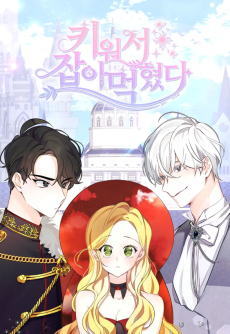 MANGA FantasyKiwoseo Jabameokyeotda
MANGA FantasyKiwoseo Jabameokyeotda
SCORE
- (3.7/5)
MORE INFO
Trending Level 1
Favorited by 199 Users

